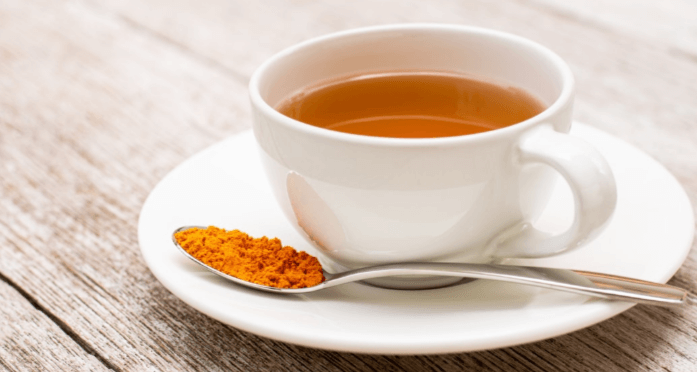wellhealthorganic.com/health-benefits-of-turmeric-tea

Introduction to Turmeric Tea
Turmeric tea, made from the powdered roots of the turmeric plant, is a vibrant golden beverage revered not only for its distinctive flavor but also for its extensive health benefits. Turmeric, a staple in traditional medicine systems such as Ayurveda, has been used for thousands of years to treat various ailments. The main active component of turmeric is curcumin, which is credited with many of the health benefits this spice offers.
Historical Significance and Cultural Uses
Historically, turmeric has been used in Asia, particularly in India, where it originated. It has been a significant part of cultural, medicinal, and culinary traditions, often used in ceremonies and as a natural remedy for inflammation and pain. The use of turmeric tea has spread globally due to its health benefits and has become integrated into daily routines of health-conscious individuals worldwide.
Overview of Turmeric’s Active Components
The primary active component in turmeric is curcumin, a potent anti-inflammatory and antioxidant compound. Curcumin’s low bioavailability is improved when consumed with black pepper, which contains piperine, enhancing absorption rates significantly.
Key Health Benefits of Turmeric Tea
Anti-inflammatory Properties
One of the most celebrated benefits of turmeric tea is its ability to reduce inflammation. Chronic inflammation is linked to numerous health issues, including heart disease, arthritis, and various chronic conditions. Curcumin in turmeric tea helps modulate the body’s inflammatory responses, providing relief and preventative benefits.
Antioxidant Effects of Curcumin
Curcumin is also known for its antioxidant properties, which fight free radicals in the body, protecting cells from damage. This can help prevent aging and many diseases and can improve skin health by enhancing complexion and reducing acne.
Turmeric Tea for Cardiovascular Health
Regular consumption of turmeric tea may help improve heart health by reducing LDL cholesterol levels and preventing blood clots. Its anti-inflammatory and antioxidant properties also help maintain healthy blood vessels, reducing stress on the heart.
Cognitive Benefits and Mental Health
Turmeric tea has been linked to improved brain function and a lower risk of brain diseases. It can enhance mood and help in treating depression. The neuroprotective properties of curcumin support overall brain health and may delay or reverse brain diseases and age-related decreases in brain function.
Turmeric Tea in Cancer Prevention
Research has suggested that curcumin can influence cancer growth, development, and spread at the molecular level and has shown potential in killing cancer cells and reducing angiogenesis (growth of new blood vessels in tumors) and metastasis (spread of cancer).
Digestive Health Enhancements
Turmeric tea can promote digestive health by enhancing digestion and reducing symptoms of bloating and gas. It’s also used as a remedy for IBS (Irritable Bowel Syndrome) and other inflammatory bowel diseases.
Curcumin has immune-boosting properties that help strengthen the immune response, reducing the risk of infections.
Its anti-inflammatory and antioxidant properties can help treat and prevent skin conditions like psoriasis and eczema.
Nutritional Profile of Turmeric Tea
Turmeric is rich in iron, fiber, vitamin B6, copper, and potassium. These nutrients contribute to its health-promoting properties, including supporting the immune system, enhancing heart health, and reducing symptoms of depression.
Turmeric tea is low in calories, making it an excellent choice for those managing their weight. It is also naturally gluten-free and can be enjoyed by those on various dietary restrictions.
How to Incorporate Turmeric Tea into Your Diet
Simple turmeric tea can be made by boiling ground turmeric with water and adding lemon and honey to taste. For a more potent brew, you can add ginger, cinnamon, or black pepper.
Drinking turmeric tea in the morning can help you start your day with an energy boost, while consuming it at night can help soothe your body and prepare you for a restful sleep.
Adding black pepper to turmeric tea can enhance the absorption of curcumin. Ginger and honey can improve the taste and add their own health benefits, including enhanced digestion and anti-inflammatory properties.
Read also wellhealthorganic.com : how to gain muscle @ well health organic
Potential Side Effects and Precautions
Turmeric tea can interfere with certain medications, including blood thinners and diabetes medication. It is important to consult with a healthcare provider before starting any new herbal supplement.
The recommended daily dose of curcumin is around 500-2000 mg per day, depending on the condition being treated. However, it’s important to start with smaller amounts to assess tolerance.
Individuals with gallbladder problems, those on blood-thinning medication, or those scheduled for surgery should avoid turmeric due to its potent effects on blood clotting and bile production.
Comparative Analysis with Other Herbal Teas
While both are high in antioxidants, turmeric tea offers superior anti-inflammatory benefits, making it a better choice for those with inflammatory conditions.
Turmeric tea does not contain caffeine, which makes it a suitable option for those sensitive to stimulants, and its robust anti-inflammatory properties set it apart from most herbal teas.
User Testimonials and Expert Opinions
Many users report significant improvements in their overall health, particularly in inflammation and digestion, after incorporating turmeric tea into their daily routines.
Health experts often recommend turmeric tea as part of an anti-inflammatory diet to help manage conditions like arthritis, metabolic syndrome, and anxiety.
Read also wellhealthorganic.com:to-increase-immunity-include-winter-foods-in-your-diet-health-tips-in-hindi
The Future of Turmeric Tea in Health and Wellness
Continuous research is uncovering new benefits of turmeric tea, including its potential effects on longevity and metabolic health.
With a growing focus on natural and holistic health remedies, turmeric tea is becoming increasingly popular in wellness circles.
FAQs About the Health Benefits of Turmeric Tea
How does turmeric tea help with inflammation? Turmeric tea contains curcumin, a compound with strong anti-inflammatory properties that help reduce inflammation throughout the body.
Can turmeric tea improve my skin health? Yes, due to its antioxidant and anti-inflammatory properties, turmeric tea can help improve skin conditions like psoriasis and acne.
Is turmeric tea good for weight loss? Turmeric tea can enhance metabolism and help manage weight by promoting fat loss and reducing inflammation.
Does turmeric tea have any side effects? While generally safe, turmeric tea can cause digestive upset in some people and should be used with caution by those on blood thinners or diabetes medications.
How often should I drink turmeric tea? It’s generally safe to drink one to two cups of turmeric tea daily, depending on your health goals and how well you tolerate it.
Can I drink turmeric tea during pregnancy? Pregnant women should consult with a healthcare provider before consuming turmeric tea as it may stimulate the uterus.
Conclusion
Turmeric tea offers a myriad of health benefits, from enhancing digestive health to providing potent anti-inflammatory effects. By incorporating this vibrant tea into your diet, you can take a proactive step towards improving your overall health and wellness. Give turicum tea a try and experience its powerful health benefits firsthand.



